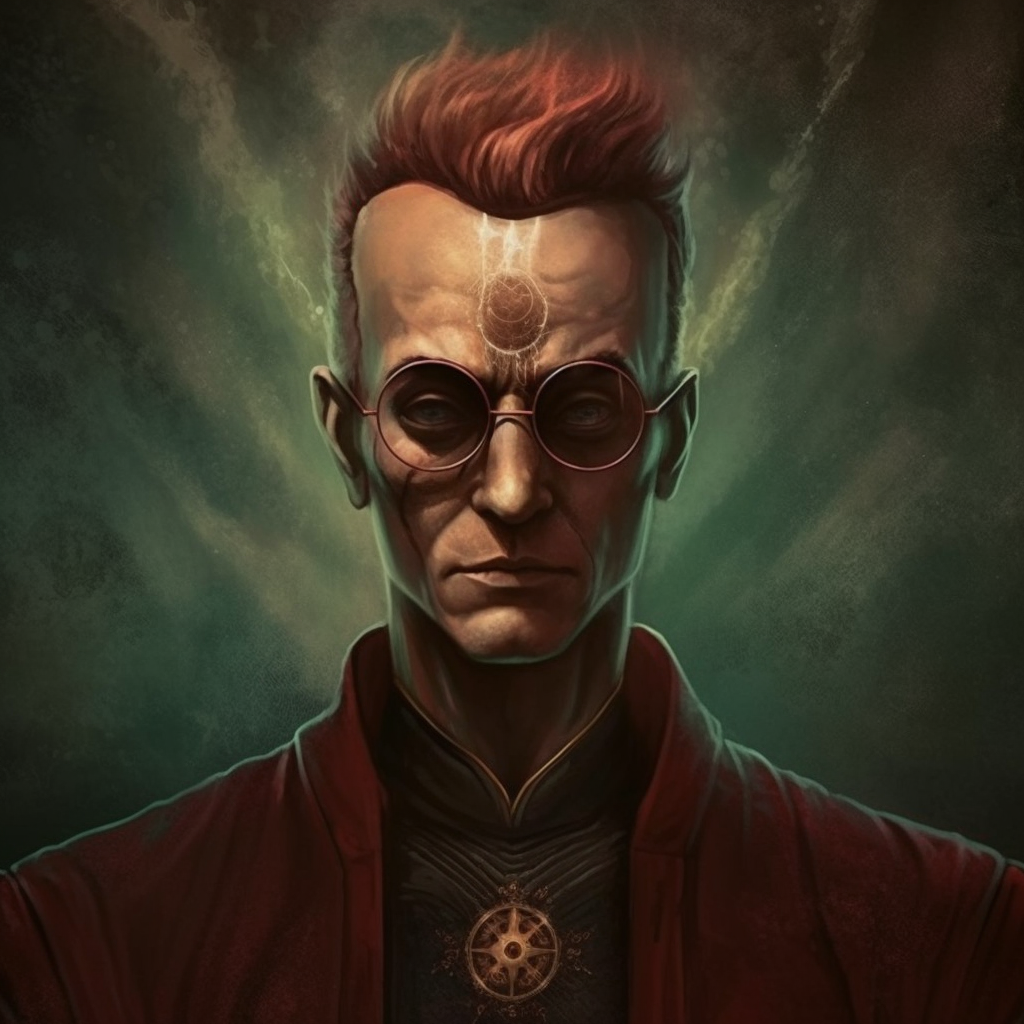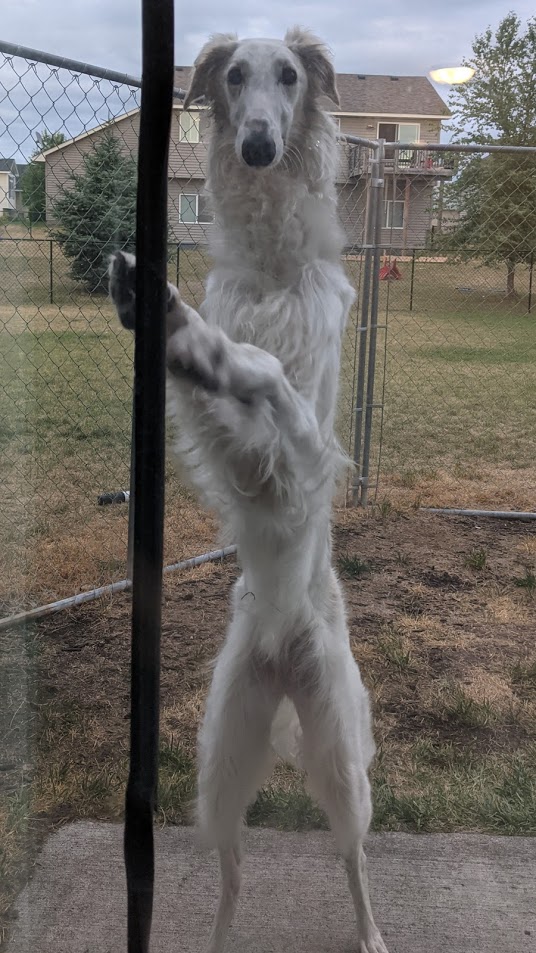Art by smbc-comics
Consciousness is often said to disappear in deep, dreamless sleep. We argue that this assumption is oversimplified. Unless dreamless sleep is defined as unconscious from the outset there are good empirical and theoretical reasons for saying that a range of different types of sleep experience, some of which are distinct from dreaming, can occur in all stages of sleep.
Pubmed Articles
Does Consciousness Disappear in Dreamless Sleep?
Sciencealert Article We Were Wrong About Consciousness Disappearing in Dreamless Sleep, Say Scientists
Sleep is NOTHING like death. You’re still experiencing lots of stuff, you still very much have a sense of self, you’re still thinking things, your brain is still processing lots of information.
General anesthesia - now THAT is a real close period to what being dead is.
You sound a lot like a guy who isn’t dead. Not sure if I should trust your opinion.
Well except Ketamine and some other substances that are used in anesthesia.
That’s not general anesthesia, that’s like twilight anesthesia or some other term like that.
Conscious sedation is the term of art. Fentanyl and versed are commonly used for this tour of sedation.
When I’m asleep I’m not experiencing shit. Close eyes, moment of black, awake again the next day.
This is not the normal human experience. Check if you’re a robot?
You just don’t remember your dreams.
That’s probably true. I have definitely had some dreams. But maybe only fifty over thirty-seven years.
Coma?
There’s still brain activity in sleep.
Brain activity isnt nessecarily consciousness.
Right? I’ve met so many of those people.
Those have consciousness without any brain activity.
But it is life.
It’s not death…
Do you really have dreamless sleep or do you simply not remember the dream?
For a long time, mine was dreamless. It wasn’t until I turned off the TV before going to bed that I started to have dreams. I theorize that the external stimuli hindered my brain from creating dreams.
It was a super weird period because my dreams started as nightmares, like my brain didn’t know what the hell was going on. Then I drifted through a period of recurring dreams and then lucid dreams. They’ve settled down into more normal dreams, but I’m still super excited to dream each and every night. It feels like I found music after being deaf or seeing colors for the first time after being blind.
It wasn’t dreamless, you just weren’t remembering your dreams. If your sleep was truly dreamless for a lengthy period of time you’d be dead.
Often simply changing your sleeping habits in any significant way is enough to get you to start remembering dreams. That’s because you need to wake up “unexpectedly” in the middle of a REM sleep phase to have a chance to form memories of them. Normally your brain has its memory-forming mechanism disengaged during REM sleep because there’s no good reason to remember that stuff - it’s just a side effect of a mental housekeeping routine.
You can also “train” yourself to remember dreams more often, to some degree, by trying to record a dream journal or otherwise forcing your brain to lay down some memories of those dreams the moment you wake up and they’re still present in your short-term memory.
Well usually you wake up after each dream circle. You just don’t remember it because you fall asleep almost instantly. That really was a problem when my father would wake me up in the morning and I couldn’t remember him waking me up and slept for another half an hour)
Then I started with a dream journal. I don’t do it anymore because I’m lazy, but I still remember waking up multiple times a night and remembering exactly what I just dreamed and notice the memory fading away.
When I journaled my dreams were extremely vivid. It isn’t like this anymore but I still sometimes have lucid dreams even though I can’t really stabilize and control them.
You’re not supposed to remember your dreams. When you remember your dreams it’s when you were woken unexpectedly, or when you consciously or unconsciously fled the dream before returning it to the Dreammaster.
We only borrow our dreams from him every night, but when we leave a dream prematurely we are stealing that dream - bringing it into our reality and hiding it away in our memories.
However precious or horrid your stolen dreams may be, remember that the Dreammaster will claim them back from you. He always does, in the end.
Thank you. The only scientific answer in this thread.
I for one welcome my sleep overlord.
The majority of sleep is dreamless, I believe it’s just during REM that you dream, which I believe is usually 15-20% of normal sleep.
Technically, if you remember a dream it’s because you woke up during a REM cycle. If your sleep cycle completes fully, then you won’t remember your dream and will feel more rested.
I think this is false but I don’t have information to refute it other than my own experience. I used to write a dream diary. When I did, I remembered my dreams almost every time I woke up. Not just half the time or 80% but more like 96% of the time. And it was very detailed with multiple dreams tied to each other.
deleted by creator
I remember I’ve had dreams but I only have a very vague sense of what they are about.
deleted by creator
Agreed. In my experience, dreams can be interpreted much like art can be interpreted. How you emotionally respond to the images and scenarios tells you a lot about what your mind is attempting to deal with while you are physically safe. I believe that dreams are a form of poetry that your mind is engaged with in order to integrate life experiences in a safe manner.
I think this is false
It’s not false. I remember my dreams every morning, and often remember them for a long time. I also have sleep issues and never get restful sleep.
There’s naturally far more nuanced to the neuroscience, but it’s largely true.
Your brain is still very much active. It’s more like running a computer with the display turned off.
Wonder how the robot feels about rebooting.
He might not feel much if the save state doesn’t get reloaded on startup!
It’s pretty terrifying when you think about it, yet completely normalized.
My pet peeve regarding all these discussions is that we throw around “consciousness”, but we have no good definition for it …
I mean to be honest I wouldn’t say that we “die” at all when you sleep… your mind is extremely active while sleeping, it’s just disconnected from motor control.
it’s just disconnected from motor control.
It’s way more than just that, though. You’re also disconnected from your sensory inputs, and furthermore, your conscious experience is interrupted. It’s not like you’re just in a sensory deprivation tank, because there you’d still experience conscious thought, and the passage of time. It just seems to turn off for a while.
Plus there are periods of deep sleep when your brain does shut down quite thoroughly. People just don’t remember those, obviously, so they put a lot more weight on the dreaming bits that slip through sometimes.
Not even that sometimes. I’m told I can do some pretty mean kicks while I sleep.
I mean, without defining what the self is and consciousness, it’s difficult to even define what death is from a consciousness point of view. A living meat bag doesn’t require brain activity either. There’s a whole range of things. So even assuming we have a good meaning of “death” is oversimplifying things.
We have a good definition of “death”, it’s the irreversible stop of some activity. For a brain, that’s neuronal depolarization; for a body organ or cell, it’s destruction past its ability to regenerate.
The self, is a snapshot of a brain state at a certain moment, which is technically irreversibly disappearing 30 times a second, but we like to think of it as just “changing” and forming a causal sequence we call “consciousness”.
it’s the irreversible stop of some activity.
This threshold has changed over time. So I don’t think it’s a good definition of it hasn’t always been the same point.
And the rest of your comment is just philosophy. You’re neither wrong nor right. Definition of self is not a concept there’s really any consensus over.
Threshold has changed, the definition is still the same, we’re just getting better at reverting the stop of some activities, like breathing or heartbeat. If we someday could revert neuronal depolarization, that would be great, but it seems difficult to achieve.
The other part is not just philosophy, it’s the best we can do to define a “self”. The philosophical part is only whether we can consider them a continuum, or whether we have to see them as usually similar but separate (there are reasons to support both versions).
If the threshold changed, the actual definition changed. The same words to describe a different point. If the definition described two different things, its changed. That’s basic and simple reasoning. If a definition no longer describes the same thing, it’s because it’s actual meaning has changed.
“To the end of the road” doesn’t change meanings when the road gets extended another 10 miles. The point changes, the definition doesn’t.
It’s terrifying at first, but if you reflect over it further it becomes natural. Sure, we can’t guarantee that we are the same continuous individual, but “not sleeping” would only see us have a more profound and permanent discontinuity. It’s not a possibility for us. Still, we do carry something of the people we used to be regardless. Consciousness vanishes and recreates itself, as do most of our cells. We are evolving entities, as is everyone around us.
This existential fear is rooted on a desire for permanence that we never had to begin with. There was never a fixed self that we could possibly know.
What sort of definition of consciousness are you looking for? I’m sure there are dozens of “good” definitions of consciousness.
That there are more than one definition is kind of the problem. And that you’d characterize any of them as “good” sounds more like a euphemism for “good enough for a particular scenario.”
A human being is a process of computation. Ending the computation is death. Pausing the computation is, well, simply pausing the computation. It has no profound significance.
(This is also my answer to the “teleporter problem.” As long as the computation continues, a change in the substrate on which it takes place also has no profound significance.)
And if the teleportation process doesn’t terminate the original, but creates a copy on the other end, are they both the same person?
Creating and destroying perfectly identical copies of the information that corresponds to a person neither creates nor destroys people unless the very last copy of that information is destroyed, in which case the person is killed.
Small divergences aren’t a big deal. For example, if a person spends an hour under the effect of an anesthetic (or alcohol) which prevents the formation of new long-term memories, this person isn’t dying when he goes to sleep and wakes up without any memories of that last hour.
Larger divergences are a big deal - losing a year of memories is pretty bad, losing a decade is even worse, and having one’s mind returned to the blank slate of an infant is very close to the same thing as dying.
So what I’m saying is that the two copies start out as the same person and then gradually become different people.
You’ve been watching Farscape.
I doubled her… twinned her!
Definitely a fucky-brain episode.
I would argue that two disconnected copies of the information that corresponds to a person does make 2 disjoint persons.
Like running a different seed on procedural generation, entropy will ensure that these two identical persons won’t be identical after whatever ticks in the biological clock.
I agree that the copies will diverge almost instantly; I’m just saying that small amounts of divergence aren’t a big deal. That’s what I’m trying to illustrate with my example of the person who loses an hour of memories. I think this is exactly equivalent to making a copy, having that copy exist for an hour, and then destroying it. An hour of memories does make the copy different from the original, but the loss of the copy is just the loss of that hour, not of a complete human being (and we naturally quickly forget much more than that - I already can’t remember what I did every hour yesterday).
I admit I don’t feel like it’s exactly equivalent, but I think that’s an illusion caused by my moral intuitions developing in a wold where destroying a copy always means destroying the only copy.
Though the simpler solution is that perhaps memory formation is paused over the period then the person ‘lost’ their memory to sleep.
Losing memories when you’re wide awake is like a file system deleting pointers to a file. The file is still there, just inaccessible.
Anyways I feel that the assertion that “Creating and destroying perfectly identical copies of the information that corresponds to a person neither creates nor destroys people” is extremely dangerous thinking that could lead to the premature end of consciousness for some very unfortunate individuals. After all, they’re perfectly identical and we have no documented instance of anyone sharing consciousness, so it may be that consciousness are unique and not commutative.
If it creates a copy, then it isn’t teleportation, it’s copying. Two copies will diverge from the moment they’re no longer a single copy.
a change in the substrate on which it takes place also has no profound significance.
It does to the person being “deleted”.
Have you played SOMA? Fun game, gets into this exact type of thing
SOMA is one of my favorite gaming experiences and probably one of the best sci-fi stories in this medium.
Saddly some monster bits were a bit weaker and I think Amnesia fans felt it didn’t match their expectations…
It feels like dreaming is the “training from a batch of sample memories” tactic from deep learning.
what a suspicious comic
Death is ‘Long Death’, Sleep is ‘Short Death’, and Naps are ‘Power Death’.
To die
To sleep
To sleep, perchance to dream…
Aye, there’s the rub.
I mean, I lucid dream every night. So my consciousness is rarely off.
I’ve been practicing for almost 20 years to be able to switch it on and off so its kinda nice that I get to be a god 6 to 8 hours a day
Why don’t you join !LucidDreaming@kbin.social, you could be helpful to build that community
deleted by creator
I have a doctorate in philosophy, if that counts.
I’m sorry that you’re so closed-minded to things like this.
Try it, and dont give up
Here is an alternative Piped link(s): https://piped.video/-mu780uB7mI?si=mKSO3SiGfkqIXnWq
Piped is a privacy-respecting open-source alternative frontend to YouTube.
I’m open-source, check me out at GitHub.
Good to know. Sometimes i use Invidious but the more alternative, the better.
Nice one👍 I love the channel.
Me: Sleep, how I loathe those little slices of death.
Also me: watches 2 hours of unnarrated sleeper train travel videos on YouTube
zZzZzZzZz
What is the door looking thing with legs supposed to represent?
a thumb with legs, arms, and a yellow eye
When people ask me what happens when you die, I say:
“Remember what it was like before you were born? Well it’s a lot like that.”
















